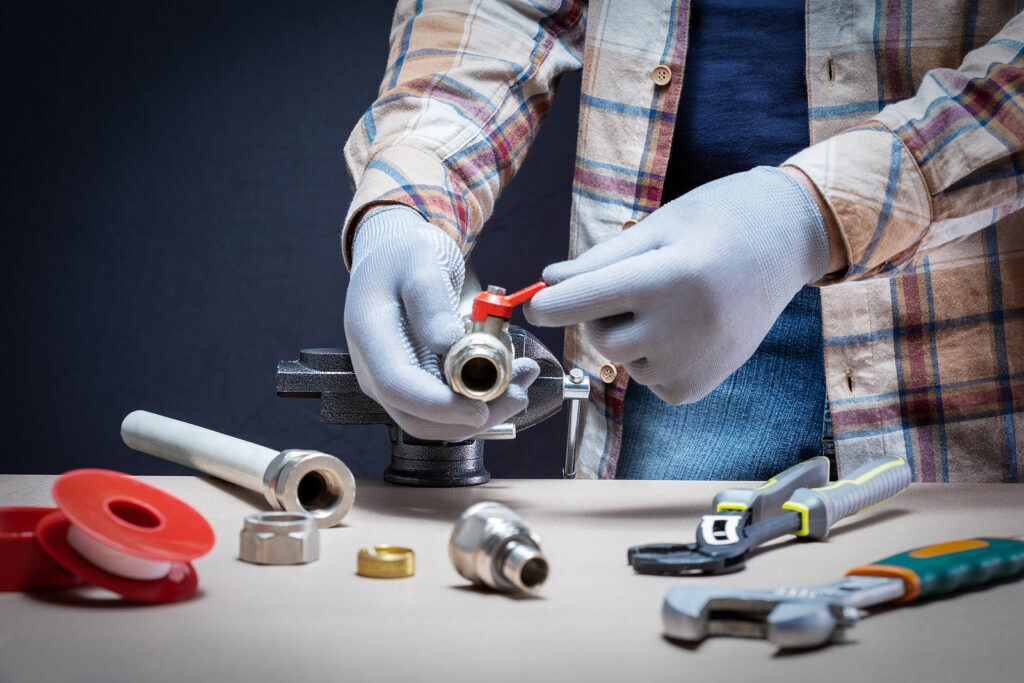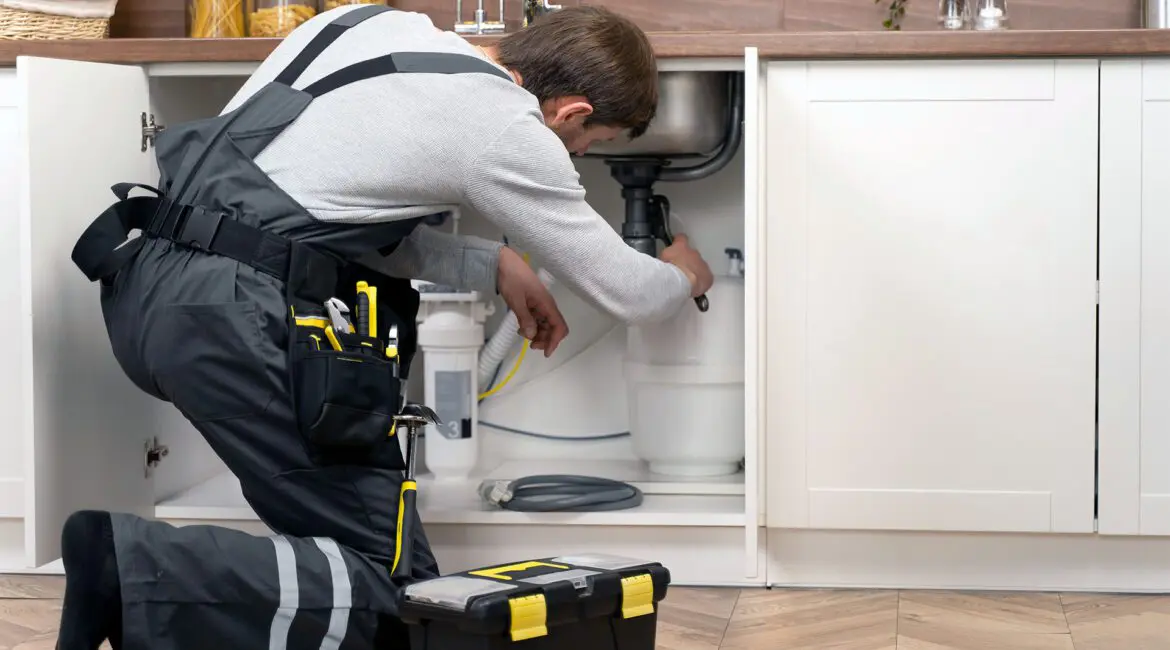What are your insights and beliefs on Expert Tips for Emergency Plumbing Repairs?

Pipes emergencies can strike at any moment, triggering anxiety and possible damage to your home. Whether it's a burst pipe, a stopped up drainpipe, or a leaky faucet, understanding exactly how to take care of the situation until an expert plumbing technician gets here can save you from further problems. This post supplies crucial emergency situation pipes pointers to help you alleviate damages and reclaim control throughout a pipes situation.
Turn Off the Supply Of Water
The initial step in any plumbing emergency is to shut down the water supply. For localized issues, such as a leaking faucet or toilet, turn off the shutoff near the component. When it comes to a significant leakage or ruptured pipeline, find your home's main water shut-off valve and turn it off instantly. Knowing the location of these shutoffs ahead of time can conserve useful time during an emergency.
Address Small Leaks with Short-lived Solutions
Tiny leaks can rapidly become significant problems if left unchecked. Make use of these short-lived solutions up until professional aid gets here:
While these repairs aren't permanent, they can assist reduce water loss and damage.
Unclog Drains Pipes Safely
A clogged drainpipe can be a discouraging and untidy concern. Right here's how to tackle it:
If these methods don't function, avoid utilizing excessive force, as it might worsen the blockage.
Handle Overflowing Toilets
An overruning toilet can trigger prompt chaos. Right here's what you need to do:
Turn off Your Hot Water Heater
In specific emergency situations, such as a ruptured pipeline, it's wise to shut off your water heater. This prevents overheating or damage to the system when water quits moving. Switch off the power supply to the hot water heater (electrical or gas) and allow it cool off to prevent potential hazards.
Temporarily Quit a Ruptured Pipeline
A burst pipeline can result in significant water damage in minutes. To mitigate the concern:
Call a professional plumbing right away to attend to the problem permanently.
Take Care Of Frozen Water Lines Very Carefully
In chillier climates, frozen pipes are an usual emergency situation. If you believe an icy pipeline:
Stop Additional Damage
Taking quick activity to reduce damage can save you money and time in the long run. Here's just how:
. Have an Emergency Situation Pipes Set
Prepare a basic pipes emergency package to manage minor issues properly. Your set should consist of:
Having these devices handy can make a substantial difference in your capability to take care of emergency situations.
Know When to Call an Expert.
While quick fixes can aid momentarily, specific pipes issues need prompt specialist attention. Call a plumbing technician if:.
Immediately calling a specialist makes certain the issue is dealt with properly and protects against additional issues.
Conclusion.
Plumbing emergencies can be frustrating, yet with the best understanding and devices, you can manage the situation successfully till help shows up. By switching off the water supply, dealing with little leakages, and using short-term repairs, you can decrease damage and keep your home safe. Keep in mind, these ideas are short-lived solutions; always speak with a certified plumbing technician to take care of the origin of the problem. Preparation and quick thinking are your best allies in any plumbing emergency.
8 Helpful Tips for Managing Plumbing Emergencies at Home
If your plumbing system hasn’t failed once, wait for it because almost everyone has a story to tell. Sometimes, it could be simple emergencies such as a leaking pipe, a blocked cistern, or even a big burst pipe. In situations like this, you need to have some handy tips to save you some money and from possible damages.
Take care of minor issues early.
Sometimes, you could have avoided an emergency by taking proactive measures while it was still early. Some major plumbing emergencies can be a result of an ignored minor issue. We recommend that you have items like plumbing tapes and other related items. A plumbing tape can allow you to manage minor leaks before the plumber arrives.
Cut off the water supply.
This tip is essential in almost any type of leakage problem. For problems like minor leakages in the toilet or kitchen, turn off the supply that takes water to the affected pipes. If the leakage is a major pipe, you must shut off the supply valve to the entire building. This will help you avoid flooding your home and neighbors if you share a flat.
Know your plumbing system
Folks typically move into a new apartment without understanding the water supply around the building. This can prove disastrous if a water emergency arises and the plumber is far away. The previous tip will prove useless if you don’t practice this one. More importantly, know where your water shut-off valve is located – you’ll need that knowledge to prevent potential home floods.
Have some common handy tools
There are lots of plumbing emergencies that you can handle without hiring a plumber. That’s why you must keep some tools available always. Some tools that you can use to fix simple plumbing emergencies easily include plumbing tapes, screwdrivers, thread seal tapes, plungers, pliers, tape measures, and rubber gloves.
Insulate your pipes from cold
You’ll save yourself from many plumbing expenses if you protect your water pipes from the cold. This is because of the harmful effects that cold weather can have on your pipes. During winter, your pipes can burst from being overly expected to freezing temperatures. So, make sure insulators are there to keep the pipes working correctly.
Avoid practices that will clog your toilet.
Many people indulge in practices that can damage the plumbing system of the entire building. One of these is when they use their toilet to dispose-off garbage. They flush all kinds of things, such as paper towels, bandages, hairs, female sanitary products, etc., down the toilet. This will block your toilet in the long run, incurring unnecessary expenditures. Dump such waste in the trash instead.
Check your dials regularly.
Sometimes, there could be leakages in your home without noticing them in time. So, constantly monitor your water meter dial. If the dial is reading when there is nobody using water, this is an indicator that there is leaking. Check for leaks immediately. Call a plumber as soon as possible if you can’t find any.
https://www.constructionplacements.com/8-helpful-tips-for-managing-plumbing-emergencies-at-home/

Do you appreciate more info about Expert Tips for Managing a Plumbing Emergency Until Help Arrives? Create a remark below. We would be glad to see your thoughts about this blog post. Hoping that you visit us again later on. Be sure to take the time to distribute this page if you liked it. Thank you for taking the time to read it.
Call Today